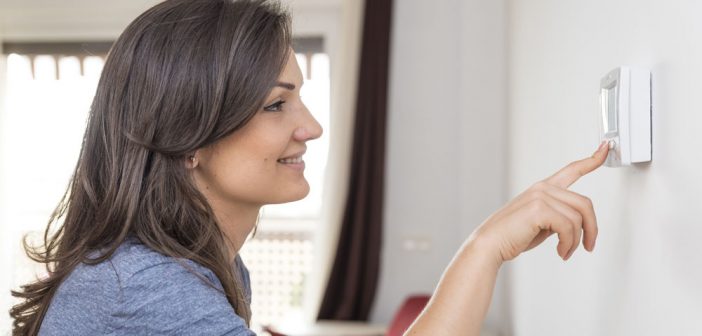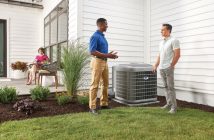Energy costs make up a significant part of household expenses. In many areas of the country, home heating costs rise every year, putting additional strain on monthly budgeting. A few simple actions can help to contain your home heating bills. In many cases, you can do the energy-saving tasks yourself. Here are a few recommended tips for lowering your heating bill this winter.
Change Your Furnace Filter Regularly
One of the simplest measures you can take to lower your heating bills is to change your furnace filter on a regular basis. This filter is an important part of your system that helps to remove dust and particles that flow through the air ducts. When the filter is clogged with dirt and debris, your HVAC must work harder to carry warm air throughout the home. A clean filter allows your system to function more efficiently, reducing your heating bills.
Utilize the Heat of the Sun
You can utilize the heat of the sun to help warm areas of your home even if you don’t have a solar heating system. Open up your draperies in areas of your home that face the sun, to help warm up room interiors. Later in the day, you can then close the drapes to keep warm air in and prevent heat loss through cold window surfaces.
Add Extra Insulation
Many older homes have insufficient insulation to conserve heat inside the structure. Adding additional insulation is a task you can do yourself with the proper equipment. If you’re not inclined to tackle the job of laying insulation in walls and attics, you can consult with a contractor to learn about the various types of insulation options for your needs.
Lower the Temperature
People often raise the interior temperature higher than is necessary or even comfortable, which can cause higher heating bills. Dry air can make your skin, eyes and lungs feel uncomfortable. Turn down the temperature and put on a sweater. You’ll feel healthier and have lower heating bills.
Use Ceiling Fans To Circulate Warmth
The ceiling fans that help to cool you in summer can also be used to circulate warm air from your heating system. Remember to flip the switch that turns your room fan in the other direction, which directs warm air that rises to the ceiling back down to circulate through the room.
Use a Computerized Thermostat
If you are like most families, individuals are away from home for a good portion of the day. If you install a computerized thermostat, you will be able to lower the temperature during the time no one is in the house, and it will automatically raise the temperature to a comfortable level to welcome you to a cozy home. You can also set the device to lower the temperature during the night, when cooler temperatures are needed for good sleep.
Ensure All Vents Are Unobstructed
Check the vents in every room of your home to ensure nothing is obstructing the flow of warm air into the room. Clothing, furniture, children’s toys and other items can block airflow and cause higher energy bills.
Caulk Around Windows and Doors To Prevent Heat Loss
Over the years, settling of the structure can cause gaps and spaces around windows and doors that let in cold air and let out warm air. Carefully inspect these areas of your home to see where you can caulk to prevent heat loss. This is an easy task that almost anyone can do themselves, with help from items from your local home improvement store.
Have Your HVAC System Tuned
Call in a contractor to inspect and tune your HVAC system to ensure good operation during the winter season. A tune-up will help your furnace to work more efficiently, helping you to save money on heating.
Create Warm Interior Décor
How you decorate your home interior can also help to improve indoor comfort and lower your heating bills. Heavy draperies will keep out cold drafts in winter and can be opened to let in the sun on sunny days. Floor rugs help to warm the lower body.
Close the Fireplace Damper
A fireplace can help warm you on cold winter nights, but it can also be the source of significant heat loss. After using your fireplace, remember to close the damper, to prevent warm air loss through the chimney.
Get an Energy Audit
An energy audit is an assessment of your current energy usage and areas where you can improve your energy efficiency. An audit may include the exterior structure of your home, the attic, your home’s furnace, the water heater and lighting. Local power companies may offer energy audits for their customers at low-cost or no cost. These assessments can give you a clear idea of how energy is being wasted in your home and what you can do to solve the problem, in order to lower your energy costs.
Homeowners who want to avoid excessively high winter heating bills can take proactive steps to make their homes more energy efficient in a variety of ways. These actions will help to keep you and your family more comfortable during the cold months and will help you to save money on energy.









